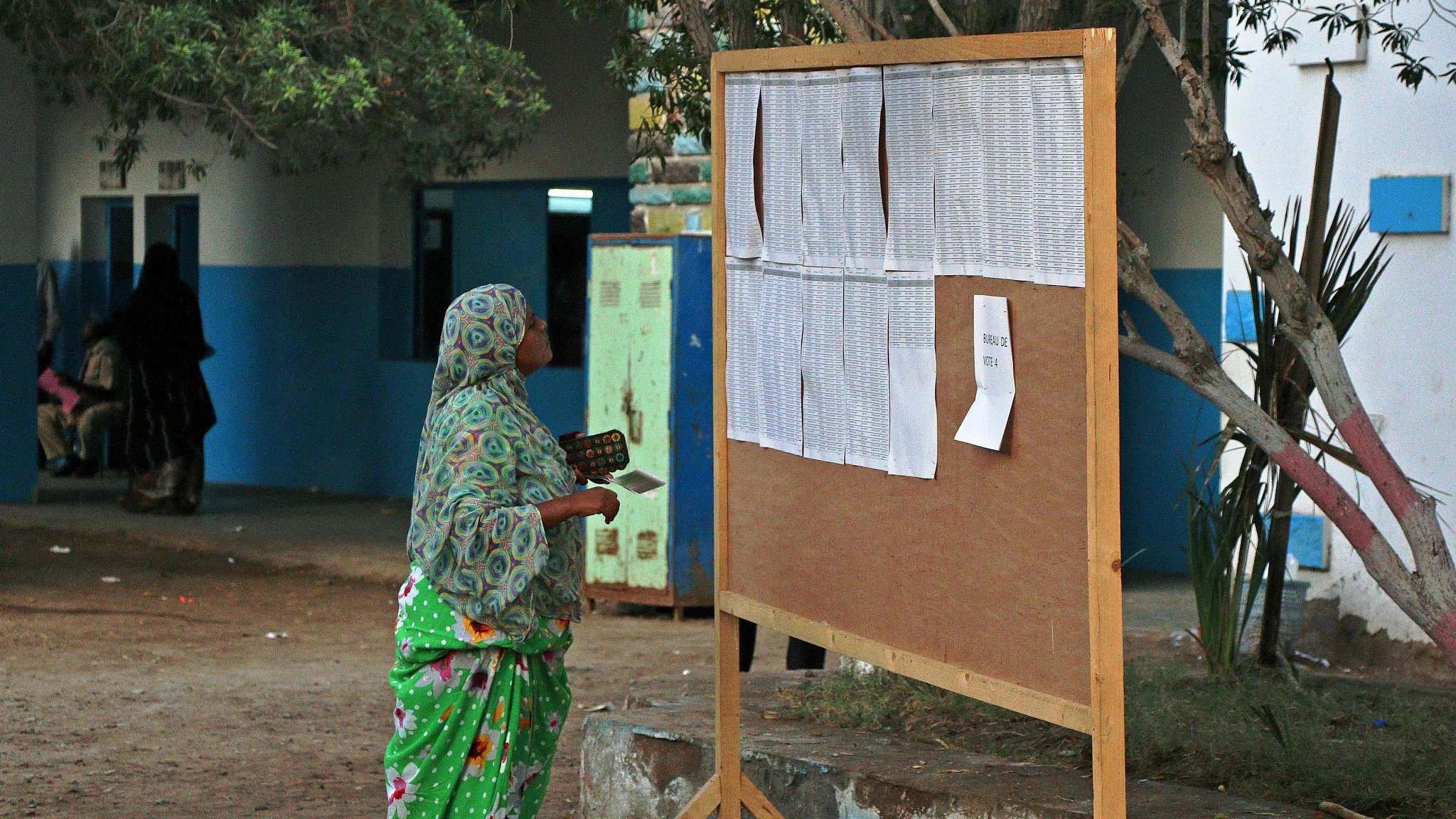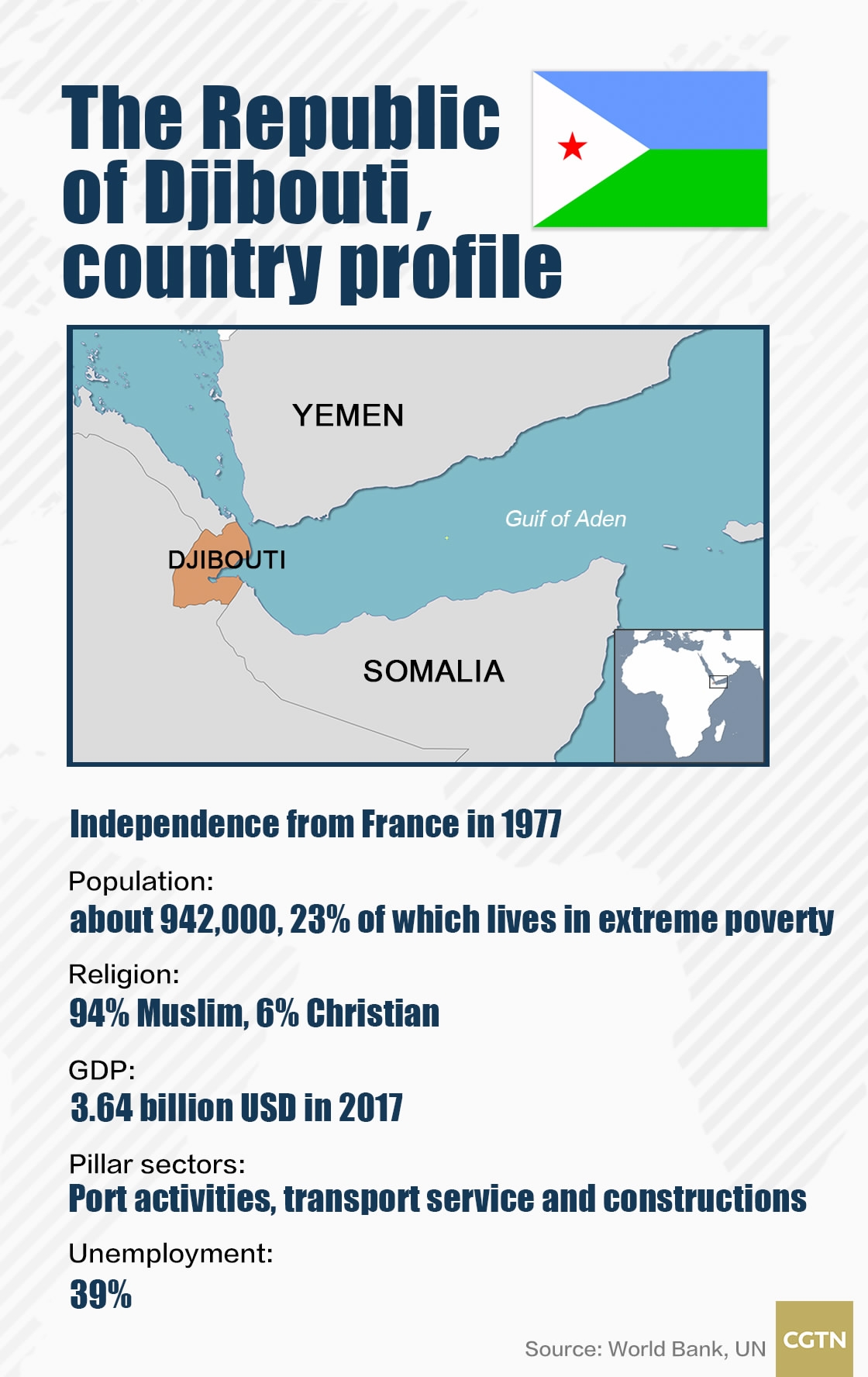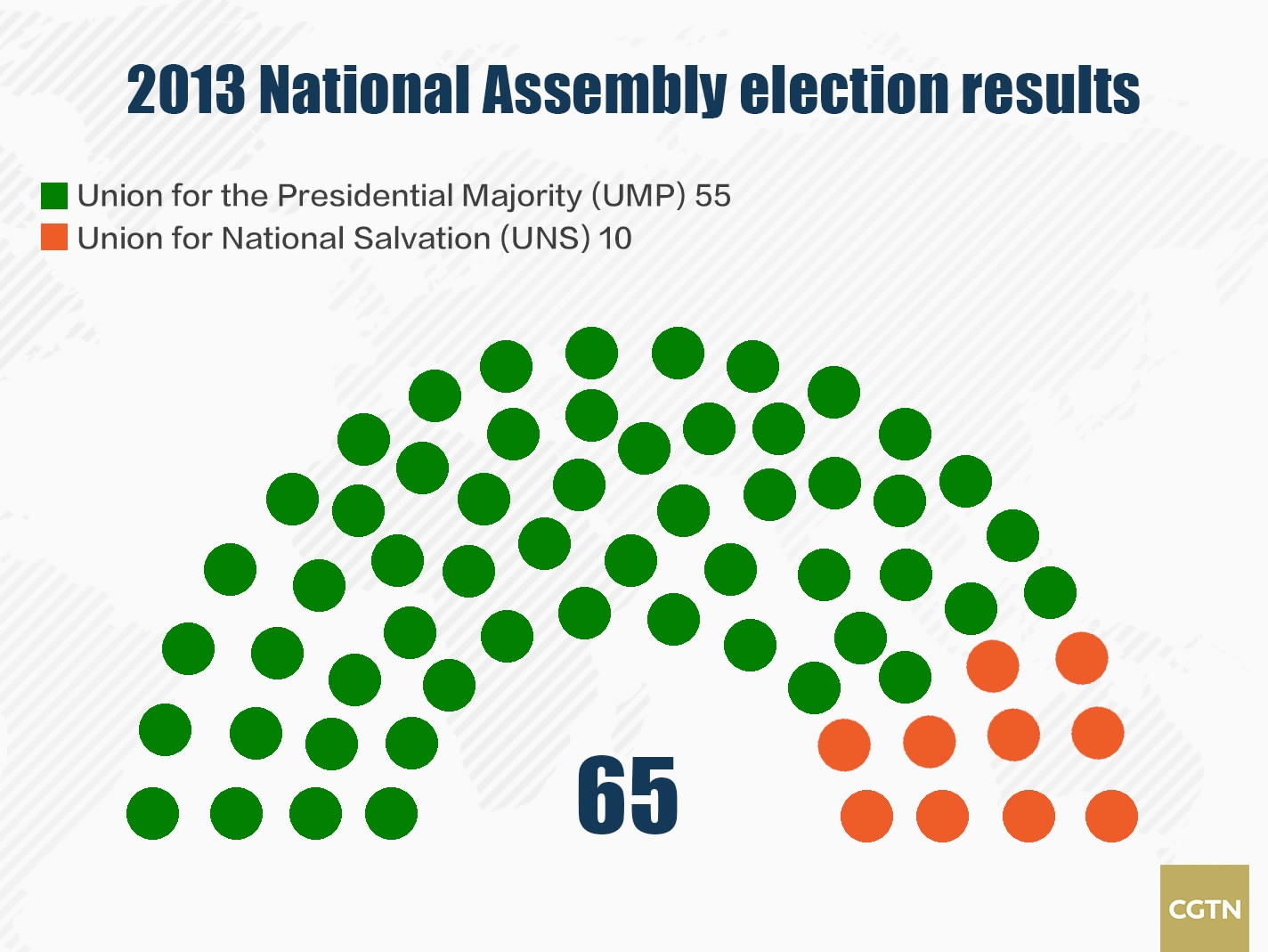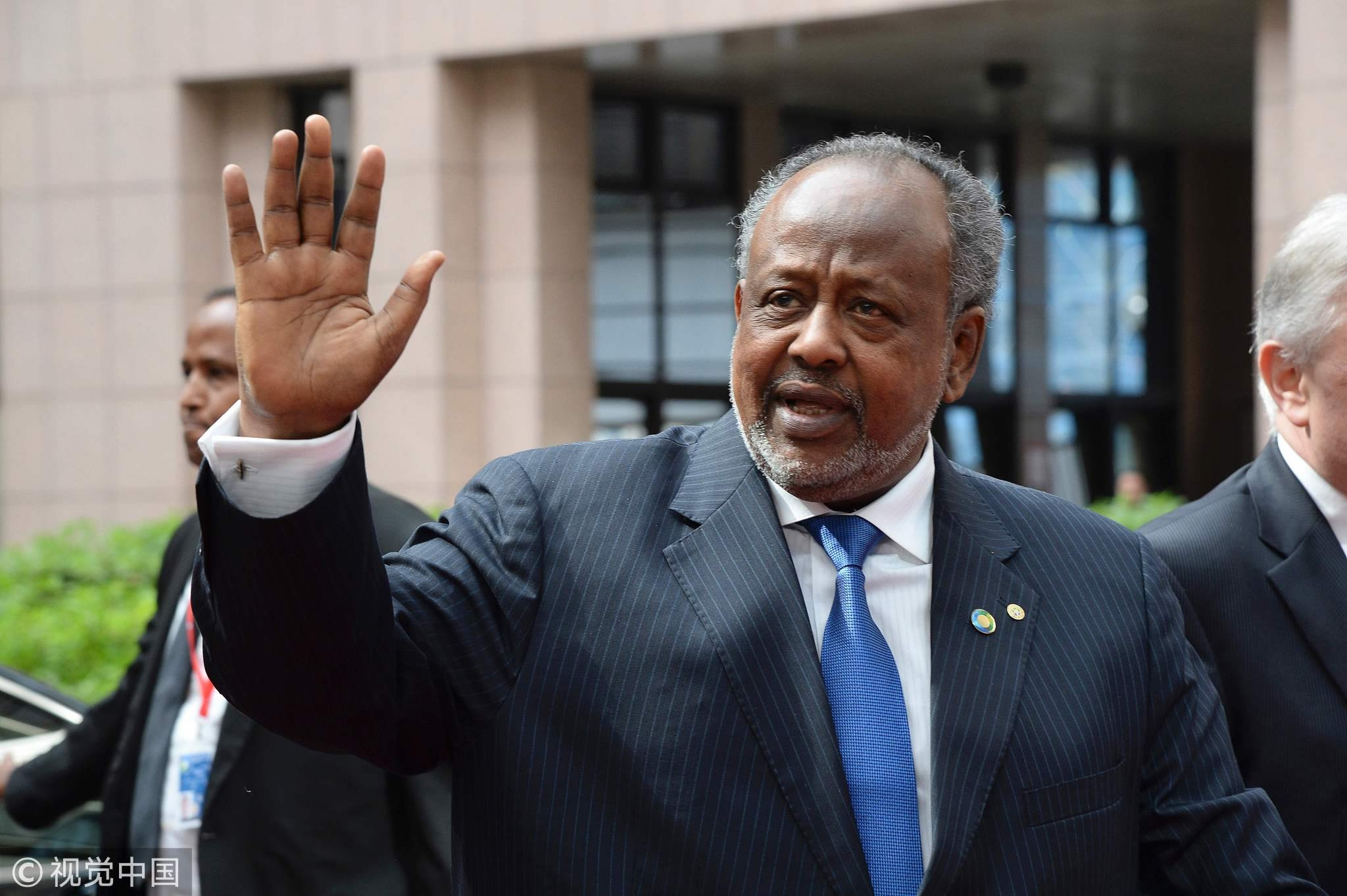
Politics
16:18, 22-Feb-2018
Djibouti parliament election: What you need to know
CGTN

Djibouti's legislature election will take place on Friday. Lawmakers will be contesting on 65 seats of the National Assembly.
President Ismail Omar Guelleh's Union for the Presidential Majority (UMP) is holding 55 seats after the 2013 election, while the opposition united under the National Salvation Union (USN) takes the remaining 10 seats.
After its independence from France in 1977, the country was renamed as the Republic of Djibouti.
The Horn of Africa fell into civil war during 1991-2000. In 2003, it held its first free multi-party presidential election.

2013 election
The 2013 election is the first contested parliamentary vote in Djibouti since 2003 when President Guelleh’s party swept all 65 seats in a poll.
Polls showed an over 66 percent turnout, casting supports for the opposition USN.
President Guelleh’s UMP declared victory, claiming 49 of the National Assembly’s 65 seats. The opposition coalition USN rejected the result, alleging massive fraud.
Guelleh's control of the parliament was at stake, after supporters of the opposition took the streets in Djibouti city and subsequently led to months of unrest.

The two coalitions reached a deal in 2014, under which the opposition agreed to accept just 10 members of parliament – instead of the 52 they claimed to have won.
President Guelleh
Guelleh, the second president the country has had, came to power in elections in 1999. He succeeded Hassan Gouled Aptidon, who led the country for two decades since independence.
In 2010, the president consolidated his power by amending the constitution and remove the two-term limit for a president. In April 2016, he won a fourth term.

Djibouti's President Ismail Omar Guelleh waved as he arrives for the 4th EU-Africa summit on April 2, 2014 at the EU Headquarters in Brussels. /VCG Photo
Djibouti's President Ismail Omar Guelleh waved as he arrives for the 4th EU-Africa summit on April 2, 2014 at the EU Headquarters in Brussels. /VCG Photo
He is now one of the longest serving leaders in Africa, who has been in power for 18 consecutive years.
Military bases
Djibouti is at the southern entrance to the Red Sea on the route to the Suez Canal. The tiny, barren nation sandwiched between Ethiopia, Eritrea and Somalia, hosts the only US permanent base on the African continent, China's first overseas naval base, as well as bases for Japan and India.
Critics say the reactions from the West about the political situation in the African country are muted because of its critical strategic position.
The USN says they feel only foreign countries can put pressure on the government but they remain silent because of their interests in Djibouti's geo-strategic position on the Gulf of Aden.
(With inputs from Reuters and AFP)

SITEMAP
Copyright © 2018 CGTN. Beijing ICP prepared NO.16065310-3
Copyright © 2018 CGTN. Beijing ICP prepared NO.16065310-3